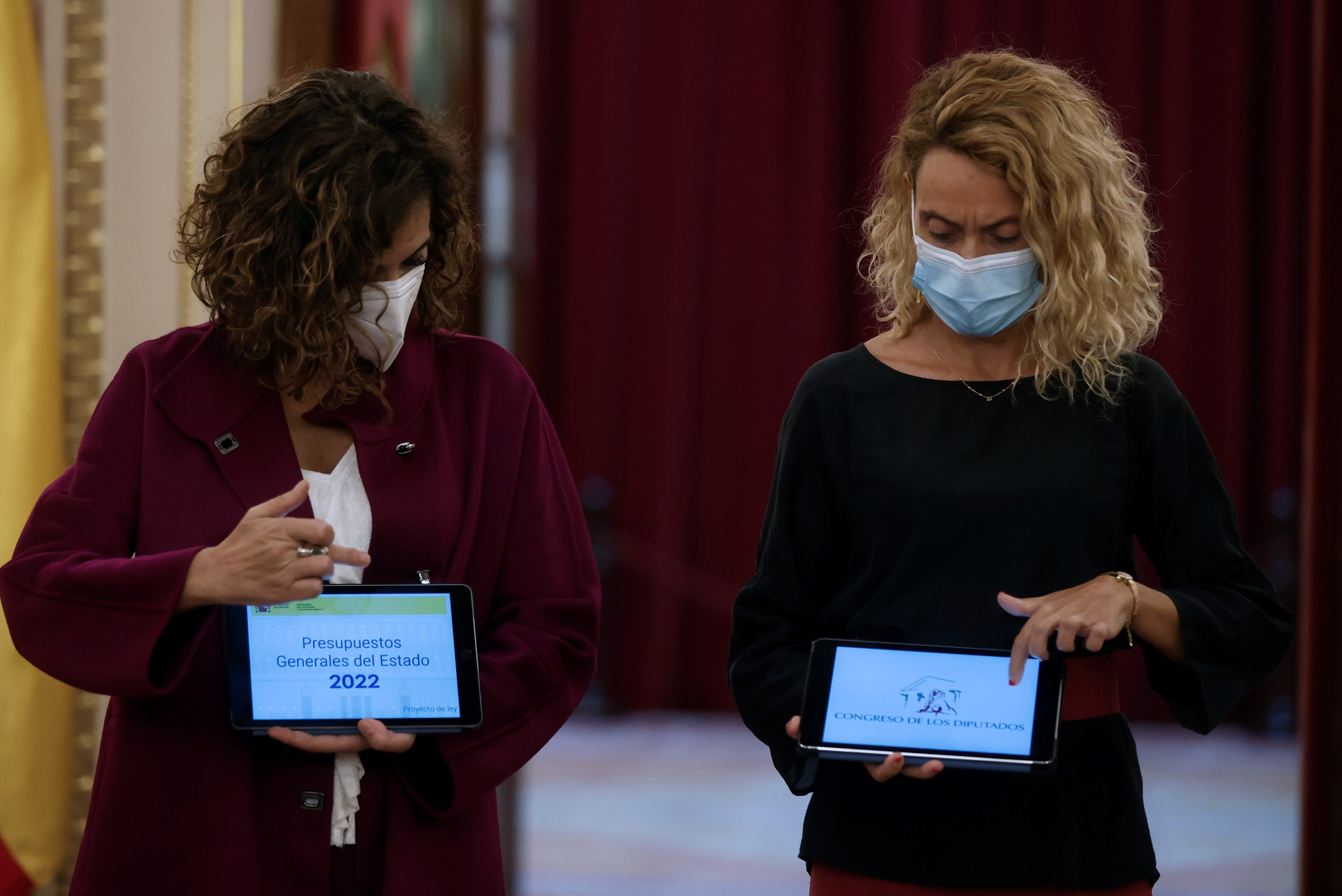The draft Spanish government budget for 2022 does not meet its obligations to Catalonia. The third additional provision of the Statute of Catalonia, a part of Spanish law, states that investment made in Catalonia will be at a percentage equivalent to the Catalan contribution to Spain's GDP, that is, 19%, according to the latest data. And this requirement is not fulfilled, with a budget bill that plans for investment of 2.23 billion euros, representing 17.2% of the total investment that can be territorialized. So, a shortfall of more than a point and a half. However, an improvement over last year, when the investment was 1.99 billion euros, representing 16.5% of the total. Today the proposed Spanish budget was presented by treasury minister María Jesús Montero in the Congress of Deputies.
With regard to current investments, the Spanish state expects to invest a total of 2.23 billion euros in Catalonia, the territory which receives the second-largest sum, like last year, behind Andalusia, which obtains 17.2% of the total. The figure earmarked for Catalonia is more than 200 million eruos greater than last year, but still fails to reach the 19% which is the Catalan contribution to the state GDP.
And nor does this figure include the 200 million euros that the Spanish government is required to transfer to the Generalitat of Catalonia in compliance with a Supreme Court ruling from 2017 (and which should have been invested as early as 2008). However, minister María Jesús Montero adds this quantity into the equation in order to assure, as she did at a press conference, that the third additional provision of the Statute has been "respected". With these 200 million euros, the investment would reach 18.7%. The Socialist minister recalled that the preparation of a budget is a very complex exercise but insisted that the investments are "in line with the statutory stipulations".
Behind Andalusia and Catalonia are, in relative figures, the Valencian Country, with 9.3% of the total, the Community of Madrid with 8.9% and Galicia with 8.3%. In total, the central government will invest 13 billion euros in the autonomous communities as a whole. There is a further sum of 7.38 billion euros of funds that are "non-regionalizable" or affect several communities, as well as 1.05 billion euros that are invested abroad.
Asked about the requests of the pro-independence parties in the budget negotiation, María Jesús Montero reiterated that "not everything can be subordinated" in this negotiation, and that other demands, in other areas, must also be addressed.
Pro-independence parties, divided
Meanwhile, the three Catalan pro-independence parties represented in the Spanish Congress have begun to manoeuvre. On the one hand, the Republican Left (ERC) claims that the Spanish government will have to move in other areas if it wants the support of its deputies. ERC sources state that the Spanish government "intends to pass the budget and then move on to other things." But these same sources point out that "they care" about those "other things". The particular example that is given is that of the proposed audiovisual law, which is very "important" due to its potential devastating effect on the Catalan language, and must be closed before talking about the public accounts.
For its part, Together for Catalonia (Junts) has called for joint negotiations. In an interview with radio broadcaster SER Catalunya, the party's spokesperson in the Congress of Deputies, Míriam Nogueras, lamented that "ERC prefers to negotiate on its own with the Socialists". And she was combative: "We will not apologize for negotiating without complexes and for defending the aspects that we have to. Giving way to the PSOE and its conditions is not being useful for Catalonia."
Those who have already split off are the Popular Unity (CUP) group. In fact, the staunch left-wing party has declined to meet with the Spanish presidency minister, Félix Bolaños, to discuss the Spanish accounts. CUP deputy Mireia Vehí gave three reasons. First, that the Spanish government "continues with its centralizing logic", following "the drift" of the now-opposition Popular Party. Second, that the executive “is not ambitious enough” at a time when it is needed. And thirdly, that the central government continues to deny the right to self-determination of Catalonia and other peoples of the Spanish state.
Don't even talk about the execution
In any case, one thing are the spending plans in the draft budget and another is how it is finally executed, that is, what is finally invested at the moment of truth. This has been a recurrent complaint from many governments, including Catalonia's. For example, the proportion that was really spent out of the amount budgeted for Catalonia for the 2015-2018 Spanish budgets was only 65.9% of the figure approved by Congress. In contrast, in the Community of Madrid for the same period, the spending was 113.9%, that is, more than had been budgeted.

